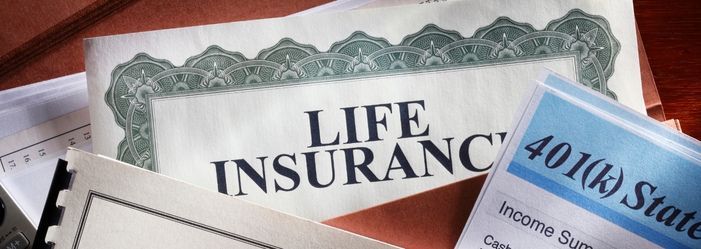Last Updated: October 17, 2023
How Paying Off Debt Today and Secures Your Tomorrow

Carrying Debt into Retirement
The fact that people are living longer than ever today means that you need to handle your finances better and make smarter moves regarding your retirement savings. According to the Consumer Financial Protection Bureau, a higher percentage of homeowners are facing retirement with mortgage debt attached to their financial situation. In fact, the percentage of people with mortgage debt went up from 22% to 30% between 2001 and 2011 for homeowners aged 65 and older. When looking at homeowners older than 75 years of age, the numbers increased from 8.4% to 21.2%.
You might be wondering what that has to do with you if you aren’t even close to 65 years of age. The truth is that these individuals didn’t suddenly find themselves in debt. It’s something that they carried with them throughout the years, picking up new debts along the way. Perhaps they carried debt from their 20s into their 30s and then into their 40s and 50s. It only stands to reason that they are going to still have at least some of that debt in their retirement years.
Taking Control of Your Debts
Rather than finding yourself in the same type of situation, you might want to consider getting your debt under control now instead of taking it with you into retirement. After all, you’ll want to make sure that you can live comfortably once you stop working. If you find that you have more debt than you can reasonably handle now, you need to find a way to get rid of it before you retire.
“It’s important for consumers to realize that the best time to begin saving is the present. It doesn’t matter how old you are. It only matters that you begin to put your money away so that you will have it when you need it,” says the CEO of Pacific Debt. “While retirement might seem like it’s far away when you’re only 30, 40, or even 50, the truth is that it is a lot closer than you think, particularly if you have a pile of student debt, credit card balances, and car loans. Add to that a mortgage, and you are going to find it nearly impossible to put any funds aside for the sole purpose of financing your retirement years.”
According to the Employee Benefits Research Institute (EBRI), families having a head of household between the ages of 55 and 64 have debt levels that are higher than any other category. Their average level of debt in 2010 was more than $100,000. They certainly didn’t amass that amount overnight, and they probably started creating that debt a few decades earlier. If you don’t want to fall into the same type of situation, you need to consider paying off the debt that you have now instead of allowing it to grow larger and larger.
A Carefree Lifestyle Now Leads to a Less-Than-Carefree Retirement
Results from a recent research study conducted by the Insured Retirement Institute (IRI) suggest that confidence in the ability to have enough money to survive ten or twenty years without an income from employment is failing among Baby Boomers as a whole. In fact, the report discovered that as little as 27% of this grouping of adults feel sure that their savings will carry them through retirement. These results suggest a trend in the making, one that leads to fewer and fewer consumers of all ages feeling confident that they can enter retirement with a carefree attitude.
Getting Rid of Your Debt Now for Easier Retirement
Your ability to borrow money decreases as you retire, simply because your debt-to-income ratio changes considerably. This number is calculated by taking the sum of your monthly debt payments and dividing this number by your gross monthly income (the amount of money you have available after taxes). Since your income is generally lower during your retirement years than when you were working, your debt-to-income ratio is probably going to be less than optimal.
“People need to start thinking about retirement well before it is looming on the horizon,” says the CEO of Pacific Debt. “Getting out of debt and staying out of it while you are still young enough to earn a decent income is critical to planning a comfortable lifestyle once you retire. Looking into a debt settlement and resolution program can help you to do that.”
Repaying your debts while you still have your health as well as your employment is a wise decision. You’ll have less difficulty now than you will when you are older, partly because the likelihood of health problems increases as you age. Don’t allow payments toward older debts to become a hardship that prevents you from enjoying life more readily.
The High Cost of Debt in Retirement
Carrying debt into retirement doesn't just create stress, it can significantly impact your finances. With a fixed income, even small monthly debt payments can eat up a large chunk of your budget.
For example, a $20,000 credit card balance at an 18% interest rate means over $300 per month in interest payments alone. Over several years, that interest expense adds up and prevents you from spending money on things you enjoy.
Debt also limits flexibility. When every dollar is accounted for, you don't have the freedom to take that dream vacation or spoil the grandkids. Your budget is tight and debt repayments make it hard to breathe.
The less debt you have, the more financial freedom and peace of mind you'll experience when you stop working. Evaluate all options, like debt settlement, to become debt-free so you can really savor retirement.
Create a Debt-Free Retirement Plan
You may feel overwhelmed trying to pay off debt while simultaneously saving for retirement. That's why creating a debt-free retirement plan can help.
First, calculate your net worth by listing assets vs liabilities. This highlights where you stand. Next, make a debt payoff plan. List debts by interest rate and create a strategy to pay them down quickly. Debt settlement can accelerate this. Finally, estimate retirement costs like healthcare and desired lifestyle.
Calculate the savings needed to cover those costs. Automate monthly contributions to retirement accounts. Even small amounts add up over time thanks to compound interest. Sticking to this plan will help you enter retirement with financial security and no debt holding you back.
Managing Debt While Transitioning Into Retirement
For many, retirement is not a single event but a transition that occurs over time. You may switch to part-time work or phase into full retirement by reducing your hours gradually. During this transition, it's important to evaluate your income and expenses to ensure you can manage any debts. With a reduced income, you'll have less available for debt repayment.
Strategies like debt settlement often work best when you have a steady income to make regular settlement payments. So it's ideal to enroll in a program before fully retiring. Also, keep contributing to retirement accounts when possible, even if you cut back on the amount. And make sure you have health insurance lined up as you leave your employer plan.
With planning, you can reduce debt, build savings, and secure healthcare coverage to transition smoothly into full retirement.
Overcoming Roadblocks to a Debt-Free Retirement
Despite the best intentions, roadblocks often arise that can derail your debt-free retirement plans:
- Job loss or early retirement - An unexpected job loss means less income to repay debts. Tap emergency savings if possible, or consult a credit counselor. Retiring early also reduces income, so have a plan to cover debts.
- Health issues - Medical issues and expenses can disrupt finances. Review health insurance options like Medicare if retiring before 65. Manage health costs by negotiating payment plans with providers.
- Supporting loved ones - Caring for children, parents or grandchildren can strain limited retirement funds. Set boundaries and seek government assistance if applicable. Don't take on debt on their behalf.
- Unforeseen expenses - Home repairs, car trouble, or other surprises bust budgets. Try to anticipate these costs when planning retirement finances. Maintaining an emergency fund provides a vital buffer.
With perseverance and adaptability, you can overcome situations like these. The key is not taking on additional debt to stay afloat. Stick to your debt reduction plan as much as possible.
FAQs
Conclusion
Retirement is meant to be an enjoyable and carefree period after years of hard work, but understanding how much it costs is important. However, carrying excessive debt into your later years can transform the golden years into a financial struggle.
Getting a handle on debt well before you retire is critical to safeguarding your finances and freedom in retirement. Analyze your situation, make a concrete debt reduction plan, and explore proven options like debt settlement to become debt-free.
With some diligence and expert help if needed, you can enter your retirement years with peace of mind, especially if you know how much you should have in your retirement funds. Focus on reducing debt now so you can fully embrace life after work.
If you are struggling with overwhelming debt and want to explore your debt relief options, Pacific Debt Relief offers a
free consultation to assess your financial situation. Our debt specialists can provide objective guidance relevant information and support to help find the right debt relief solution.
✔ Accredited by Better Business Bureau with BBB A+ rating (4.93 rating and 1678 reviews)
✔ US News and World Reports and Bankrate ranked Pacific Debt Relief as one of “The Best Debt Relief Companies of 2024”
✔ 6.9 star rating by BestCompany.com (over 2379 client reviews)
✔ 4.8 star rating by TrustPilot based (over 1613 verified consumer reviews)
✔ ConsumerAffairs.com Accredited (over 544 verified reviews with an average rating of 5 stars)
✔ A Top 10 Rated Compan by TopTenReviews.com , ConsumersAdvocate.com and Top10debtconsolidation.com
✔ 4.6 star rating by Google (229 client reviews)
✔ 100% rating by SuperMoney (9 client reviews)
Reduce Your Credit Card Debt By Up to Half

BBB Reviews | 4.9/5.0 Rating









 Do Not Sell My Personal Information
Do Not Sell My Personal Information